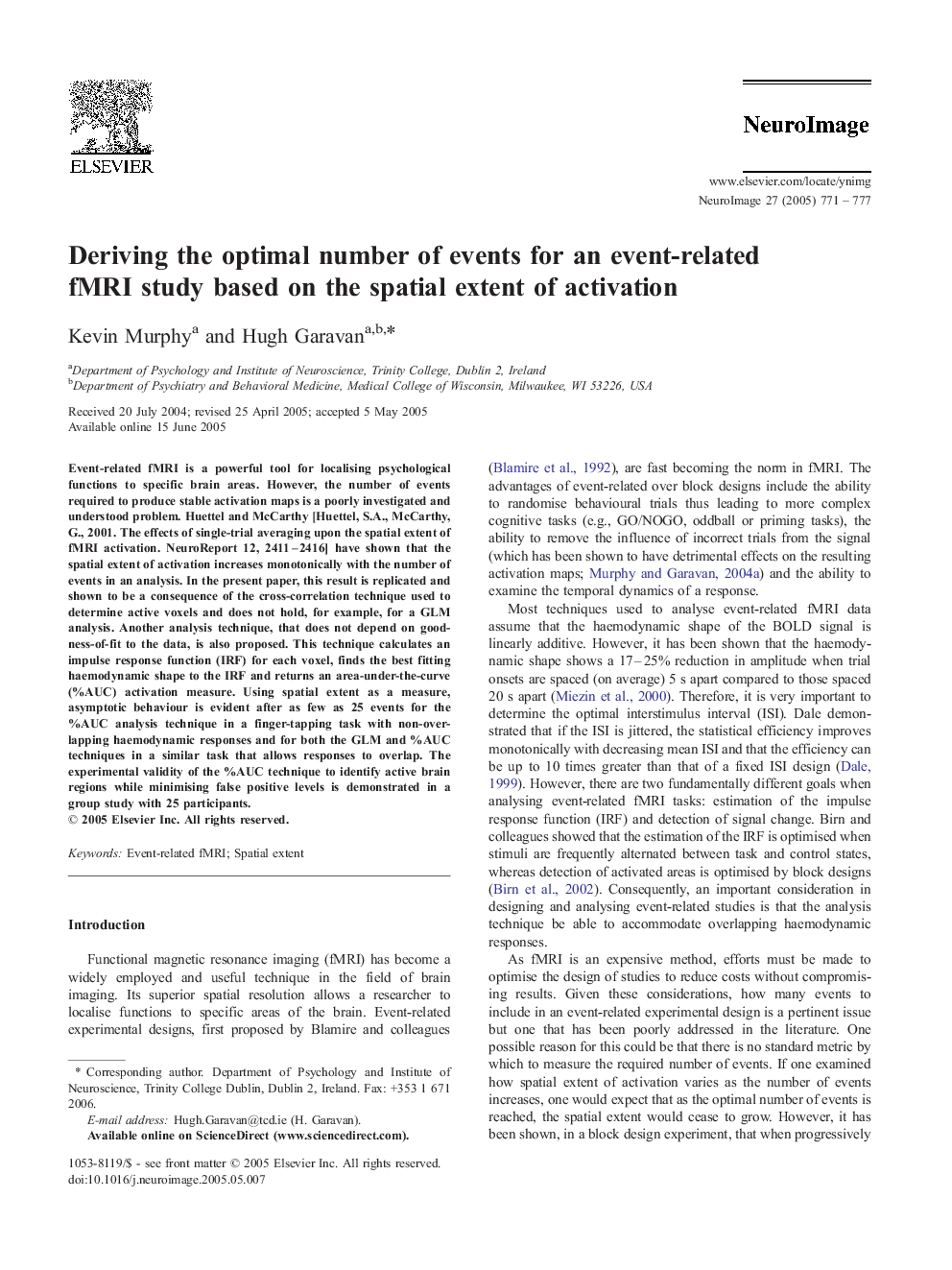| کد مقاله | کد نشریه | سال انتشار | مقاله انگلیسی | نسخه تمام متن |
|---|---|---|---|---|
| 9198165 | 1188891 | 2005 | 7 صفحه PDF | دانلود رایگان |
عنوان انگلیسی مقاله ISI
Deriving the optimal number of events for an event-related fMRI study based on the spatial extent of activation
دانلود مقاله + سفارش ترجمه
دانلود مقاله ISI انگلیسی
رایگان برای ایرانیان
موضوعات مرتبط
علوم زیستی و بیوفناوری
علم عصب شناسی
علوم اعصاب شناختی
پیش نمایش صفحه اول مقاله

چکیده انگلیسی
Event-related fMRI is a powerful tool for localising psychological functions to specific brain areas. However, the number of events required to produce stable activation maps is a poorly investigated and understood problem. Huettel and McCarthy [Huettel, S.A., McCarthy, G., 2001. The effects of single-trial averaging upon the spatial extent of fMRI activation. NeuroReport 12, 2411-2416] have shown that the spatial extent of activation increases monotonically with the number of events in an analysis. In the present paper, this result is replicated and shown to be a consequence of the cross-correlation technique used to determine active voxels and does not hold, for example, for a GLM analysis. Another analysis technique, that does not depend on goodness-of-fit to the data, is also proposed. This technique calculates an impulse response function (IRF) for each voxel, finds the best fitting haemodynamic shape to the IRF and returns an area-under-the-curve (%AUC) activation measure. Using spatial extent as a measure, asymptotic behaviour is evident after as few as 25 events for the %AUC analysis technique in a finger-tapping task with non-overlapping haemodynamic responses and for both the GLM and %AUC techniques in a similar task that allows responses to overlap. The experimental validity of the %AUC technique to identify active brain regions while minimising false positive levels is demonstrated in a group study with 25 participants.
ناشر
Database: Elsevier - ScienceDirect (ساینس دایرکت)
Journal: NeuroImage - Volume 27, Issue 4, 1 October 2005, Pages 771-777
Journal: NeuroImage - Volume 27, Issue 4, 1 October 2005, Pages 771-777
نویسندگان
Kevin Murphy, Hugh Garavan,